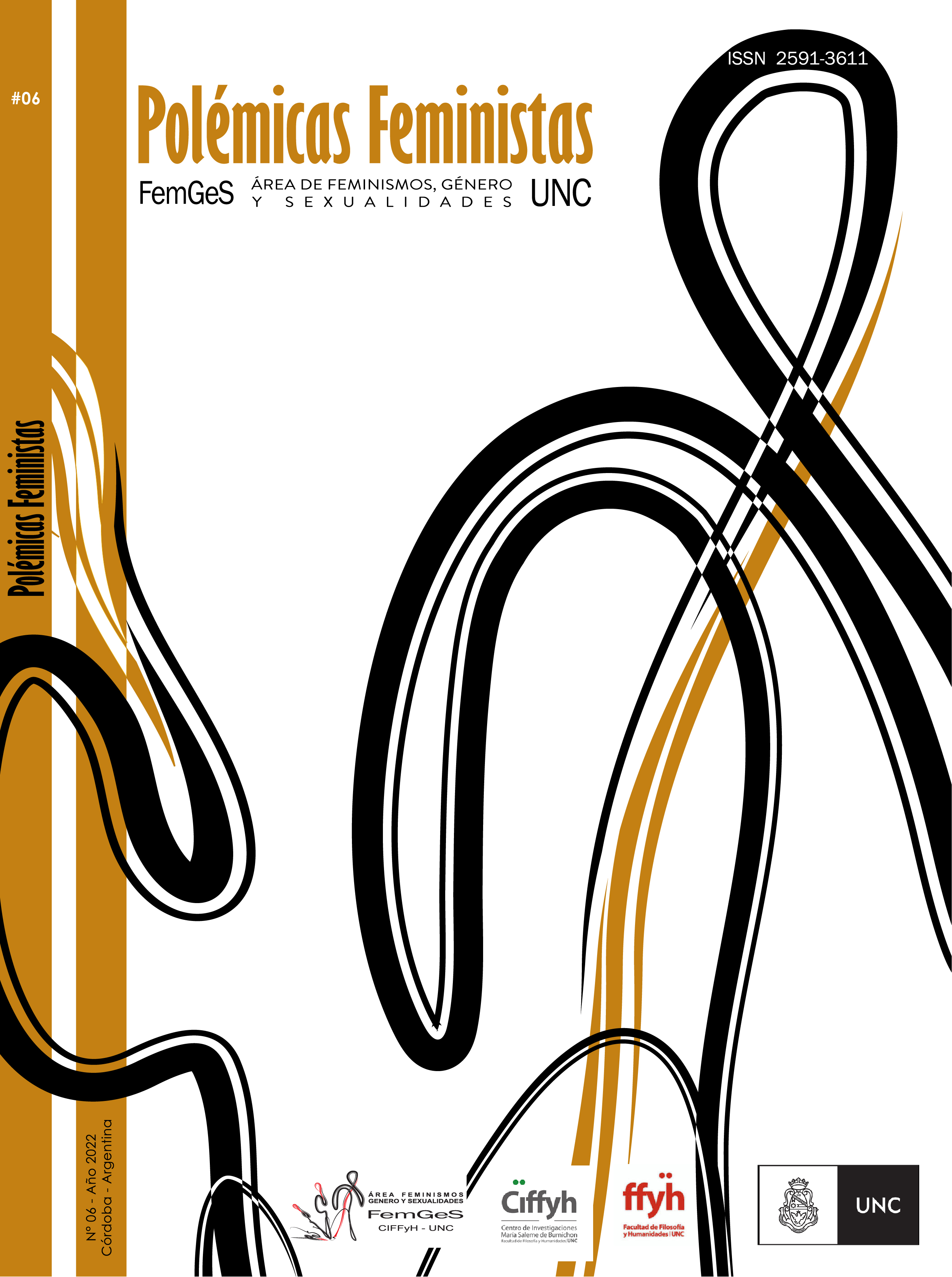Violence, affections, sodororidade in Prayers for the stolen, by Tatiana Huezo
Keywords:
Prayers for the stolen, femicide, patriarchy, sodororidade, violenceAbstract
This article aims at presenting a reading, among many possible ones, of the Mexican movie production Prayers for the Stolen (Noche de fuego, 2021), directed by Tatiana Huezo. Our intention is to reflect upon the extreme violence to which the girl and woman characters are subjected, more specifically: the inaction of the Nation-state, which does not fight organized crime which is responsible for kidnaps, rapes and murders of such female characters; the corruption and involvement of police forces with drug trafficking schemes; the unprotected situation and absolute abandonment in which these women live in a small Mexican countryside village. The purpose, then, is to think about the two major aspects related to the engendering of continuous violence against these bodies. There is, on the one hand, the way the women from the village try, yet tentatively, in a sisterhood gesture among them, to preserve the lives of the girls and young women. On the other hand, we are going to analyze the other face of violence: the worst of them, the one which brings into perspective the systemic and objective violence, many times translated as the erasure, the passivity, of the women characters in question. To consider the filmic production, we are going to resort to the critical-theoretical positions of Judith Butler, Vilma Piedade, Julieta Paredes, Slavoj Žižek, among others.
Downloads
References
Almeida, Silvio (2022, 26 de maio). Ódio e nojo. Folha de São Paulo. https://www1.folha.uol.com.br/colunas/silvio-almeida/2022/05/odio-e-nojo.shtml
Benevides, Bruna G. e Nogueira, Sayonara N. B. (orgs.) (2021). Dossiê. Assassinatos e violência contra travestis e transexuais brasileiras em 2020. Expressão Popular, ANTRA, IBTE. https://antrabrasil.files.wordpress.com/2021/01/dossie-trans-2021-29jan2021.pdf
Butler, Judith (2020). Vida precária: os poderes do luto e da violência. Autêntica.
Clement, Jennifer (2015). Reze pelas mulheres roubadas. Rocco.
Davis, Angela (2016). Mulheres, raça e classe. Boitempo.
Feminicídio: a história do termo que mudou a legislação brasileira (2021, 12 de agosto). Hypeness. https://www.hypeness.com.br/2021/08/feminicidio-a-historia-do-termo-que-mudou-a-legislacao-brasileira/
Grávidas negras e pardas recebem menos anestesia no parto (2014, 21 de março). Portal Geledés. https://www.geledes.org.br/gravidas-pardas-e-negras-recebem-menos-anestesia-no-parto/
Mbembe, Achille (2018). Necropolítica: biopoder, soberania, estado de exceção, política de morte. N-1 Edições.
Neves, Tiago Iwasawa; Santos, Andreza Silva e Mariz, Inácio Antônio Silva de (2017). A violência e o seu real: Zizek e a psicanálise. Revista Subjetividades, 17 (1), pp. 45-54.
Paredes, Julieta (2014). Hilando fino desde el feminismo comunitario. El Rebozo; Palapa Editorial.
Piedade, Vilma (2017). Dororidade. Nós Editora.
Rosa, Patrícia (2021, 12 de dezembro). Luta contra a Violência à Mulher: Brasil ocupa o 5º lugar no Ranking mundial do Feminicídio. Afirmativa. https://revistaafirmativa.com.br/luta-contra-a-violencia-a-mulher-brasil-ocupa-o-5o-lugar-no-ranking-mundial-do-feminicidio/
Žižek, Slavoj (2014). Violência. Boitempo.
Downloads
Published
Issue
Section
License
Copyright (c) 2022 Rosilene Caramalac, Flávio Adriano Nantes

This work is licensed under a Creative Commons Attribution-NonCommercial-ShareAlike 4.0 International License.
From 2022: Attribution - Non-Commercial - Share Alike (CC BY- NC- SA 4.0)
From 2011 to 2021: Attribution - Non-Commercial - No Derivative Works (CC BY- NC- ND)






